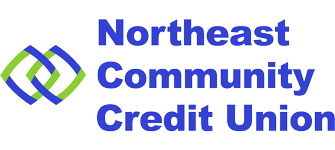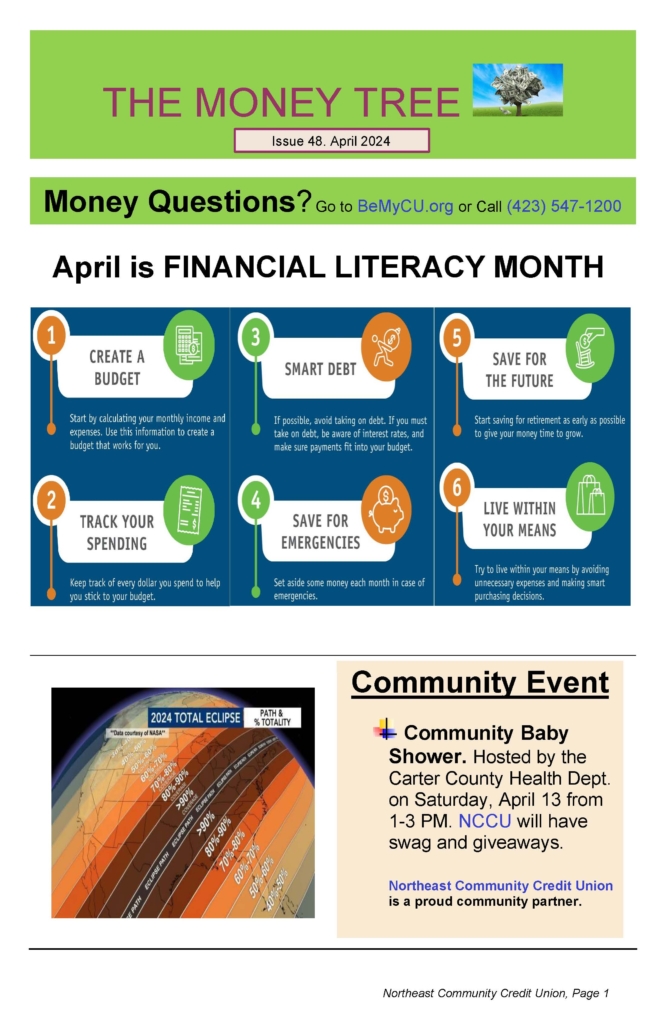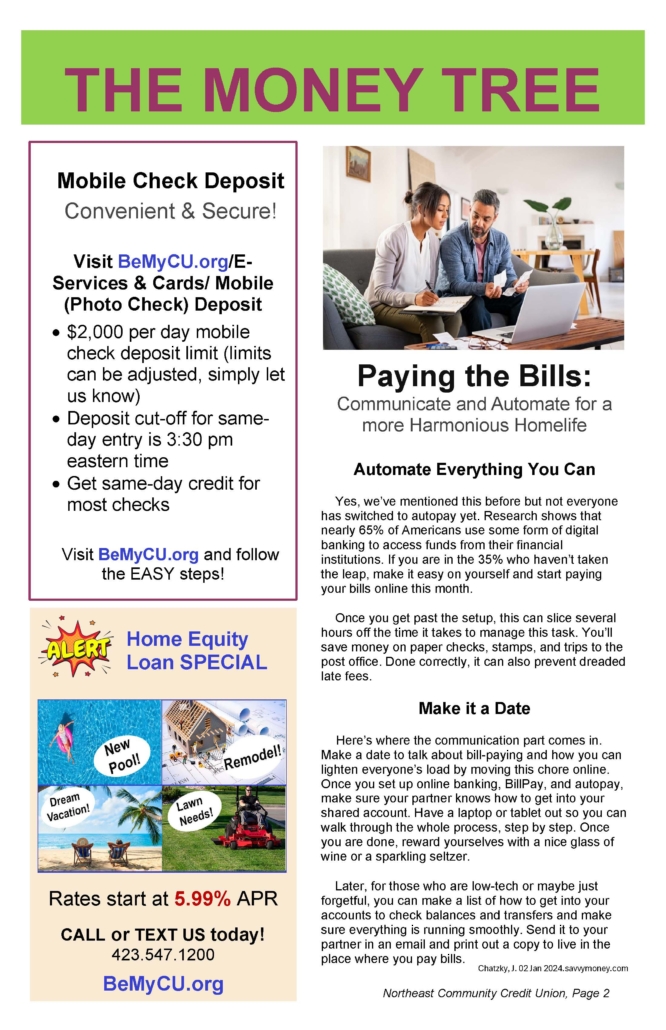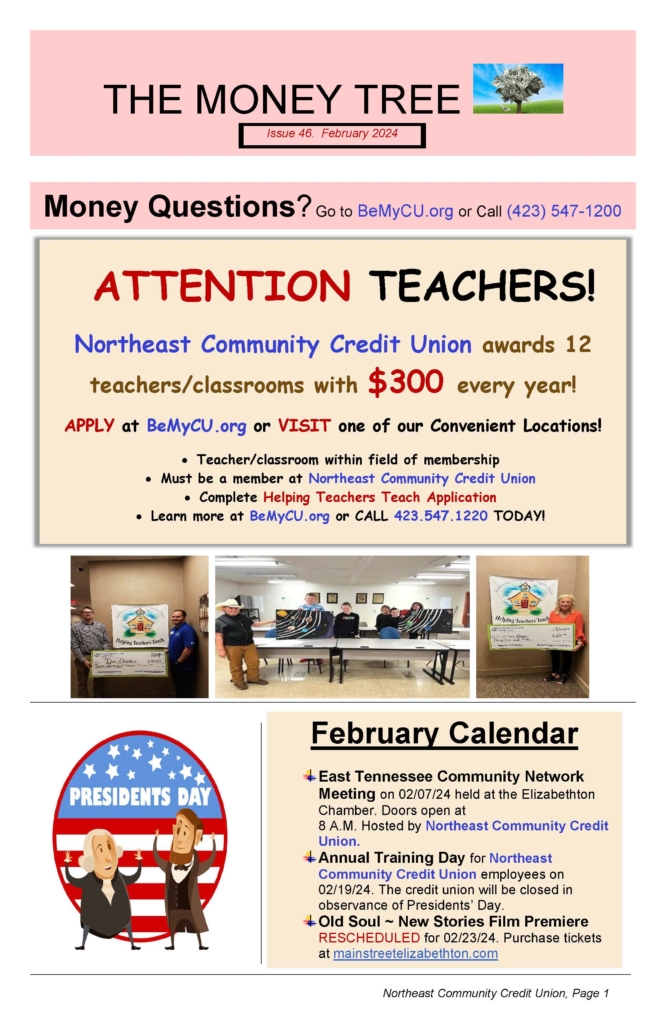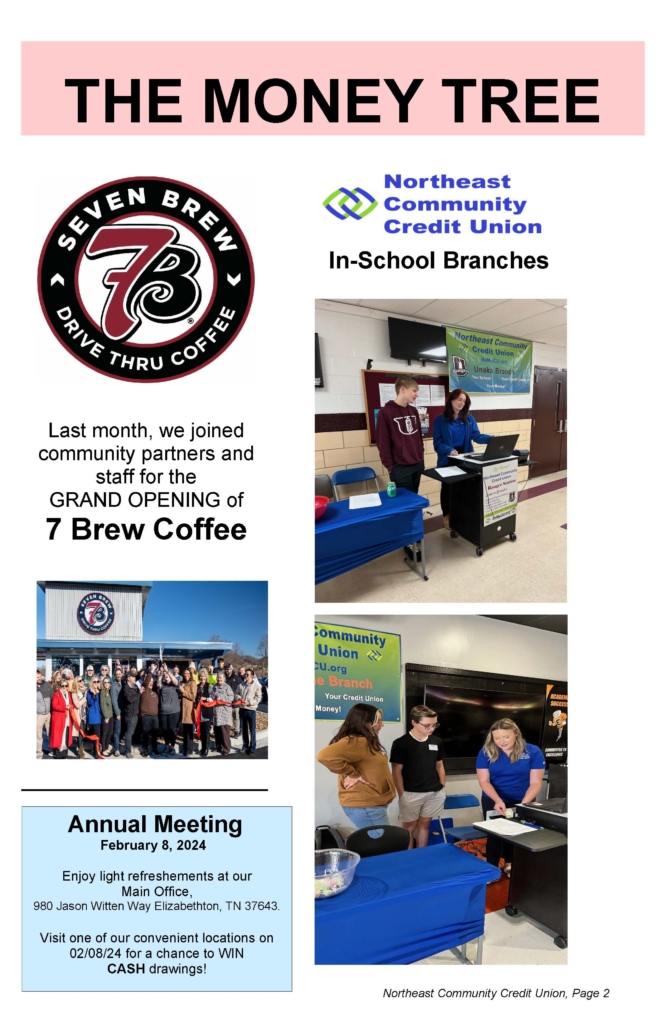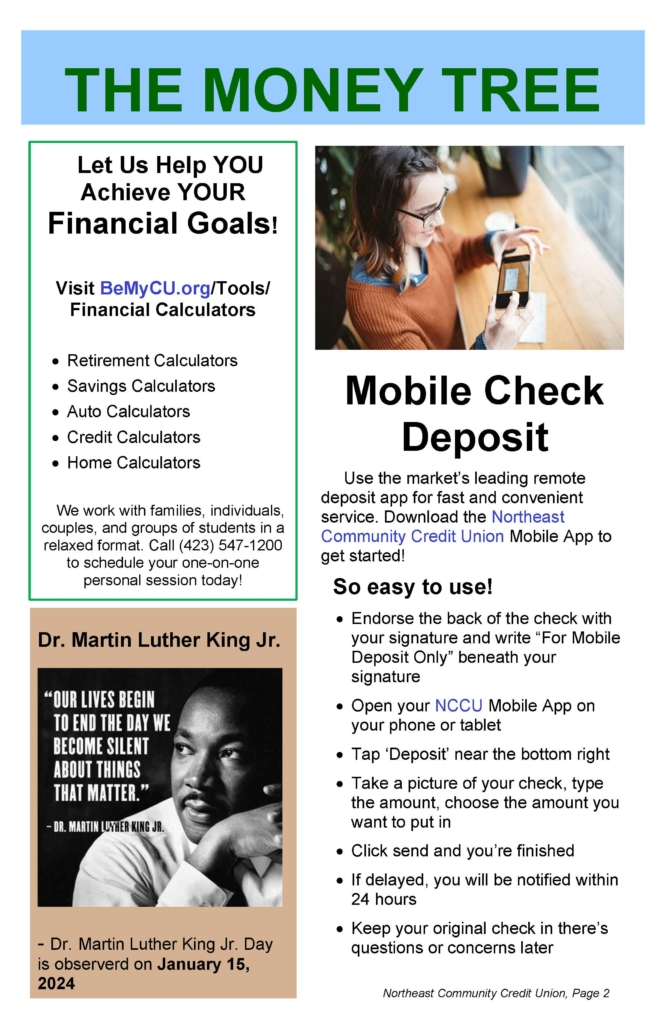Tracie Shelton Powers, English teacher at Hampton High School, is the latest Northeast Community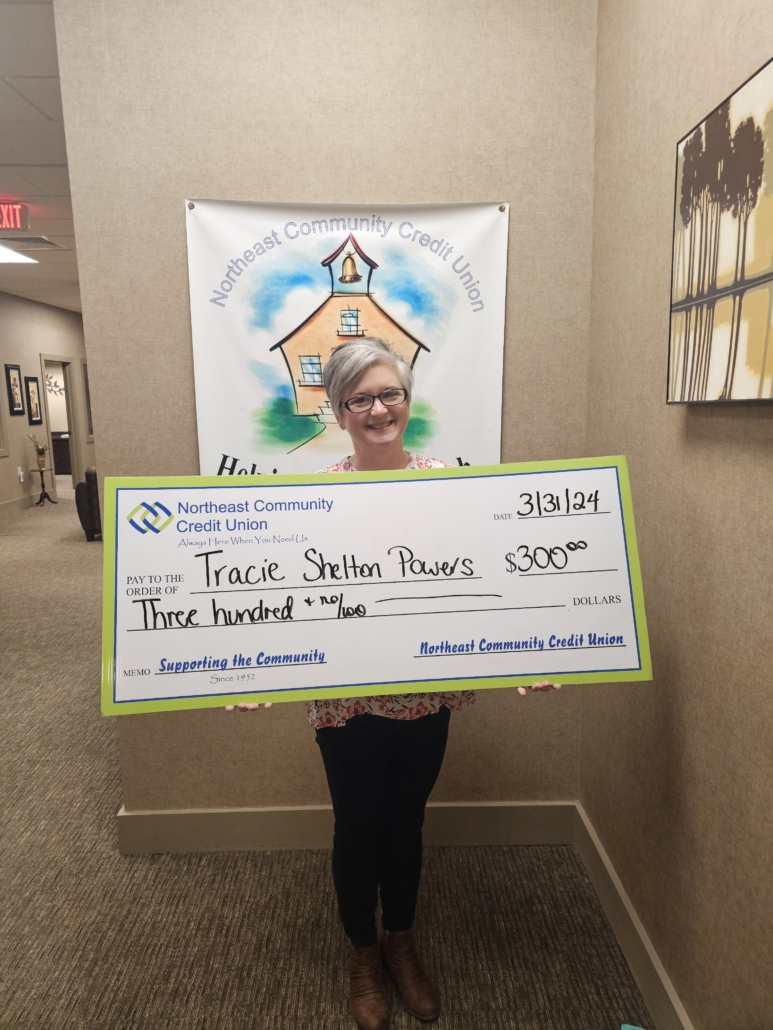 Credit Union Helping Teachers Teach grant winner.
Credit Union Helping Teachers Teach grant winner.
Powers applied for the grant to update the teacher workroom/lounge and meeting area. The revamped workspace will also be dedicated in honor of a long-time aide at HHS – a future surprise for that employee.
“Teachers put so much of their own money into their classrooms, their students, and their school,” Powers said. “This time, we are applying for this grant to fix our workroom/teacher’s lounge and lunch area. This is also a surprise for one of our aides. We want to honor her and all she’s done for the students, faculty and Hampton High through the years.”
Northeast Community Credit Union awards $300 every month to a classroom to be utilized for classroom needs, classroom activities, and academic enrichment. Helping Teachers Teach is open to teachers within Carter, Johnson, Unicoi, Sullivan and Washington counties who are members of Northeast Community Credit Union. Area teachers may become members online or at any NCCU location and can download the grant application on the credit union’s website: www.BeMyCU.org.
Jessica Hayes, science teacher at Elizabethton High School, is the latest Northeast Community Credit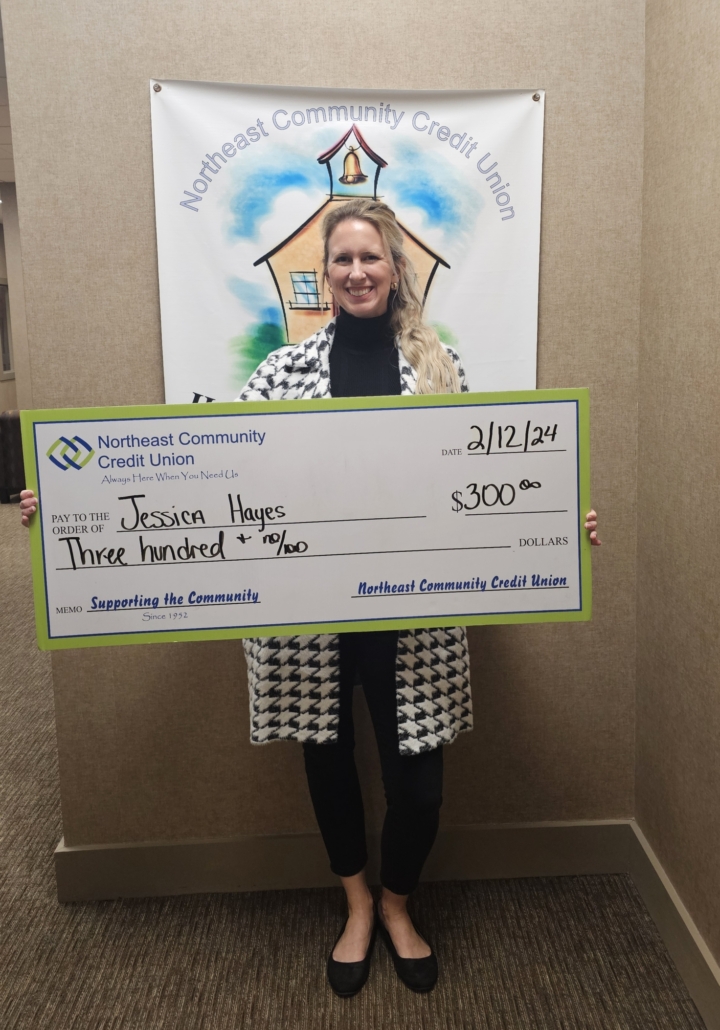 Union Helping Teachers Teach grant winner.
Union Helping Teachers Teach grant winner.
Hayes applied for the grant to help cover the cost for students competing in the Oak Ridge National Laboratory Science Bowl. While at the Science Bowl, students will participate in the competition, attend a dinner and meet scientists that work in and around the lab.
“Besides the competition, students will get a learning experience,” Hayes said. “It is an enriching experience.”
Northeast Community Credit Union awards $300 every month to a classroom to be utilized for classroom needs, classroom activities, and academic enrichment. Helping Teachers Teach is open to teachers within Carter, Johnson, Unicoi, Sullivan and Washington counties who are members of Northeast Community Credit Union. Area teachers may become members online or at any NCCU location and can download the grant application on the credit union’s website: www.BeMyCU.org.
Northeast Community Credit Union is excited to announce the appointment of David LeVeau as Commercial Loan Manager, spearheading the credit union’s new commercial lending program. Since Mr. LeVeau’s arrival, NCCU has instituted a comprehensive commercial lending initiative to support local businesses with their financing requirements.
Commercial Loan Manager, spearheading the credit union’s new commercial lending program. Since Mr. LeVeau’s arrival, NCCU has instituted a comprehensive commercial lending initiative to support local businesses with their financing requirements.
Bringing 23 years of financial expertise from the community banking sector and beyond, Mr. LeVeau holds a BS degree in Business Administration from UNC-Chapel Hill, a Masters of Accountancy from ETSU, and graduated from the LSU Graduate School of Banking in 2019. Beyond his professional accomplishments, Mr. LeVeau is actively involved in the community, serving on several non-profit boards and coaching youth sports. Married for nearly 13 years to his wife Anette, Mr. LeVeau enjoys spending quality time with his children and grandchildren.
Teresa Arnold, President/CEO of NCCU, praises LeVeau as “an ideal addition to our credit union,” highlighting his extensive financial background, dedication to family financial well-being, and hands-on involvement in community growth. Arnold emphasizes the growing demand for commercial lending among local small businesses and sees LeVeau’s expertise as instrumental in helping businesses achieve sustained success.
Founded in 1952, NCCU’s assets have reached nearly $180 million, serving close to 13,000 members. Membership is open to individuals and businesses residing, working, worshiping, or attending school in Carter, Johnson, Washington, Unicoi, and Sullivan counties, along with their families. With four branches and digital services, NCCU caters to various member needs.
The new lending program extends commercial real estate loans, business equipment and vehicle loans, and business lines of credit to business members. Mr. LeVeau is dedicated to assisting existing and potential business members in the community. These offerings align with NCCU’s mission of “people helping people,” aiming to enhance local financial well-being and promote economic development.
Businesses in Carter, Johnson, Sullivan, Washington, and Unicoi counties can become NCCU members by depositing a single “share” ($5), granting ownership in the credit union and eligibility for loan products, checking accounts, investments, and more. For additional details on the program or membership, visit www.bemycu.org. NCCU’s commercial loan webpage is accessible at https://www.bemycu.org/loans/loan-types/commercial-loans/. Contact David LeVeau at commerciallending@bemycu.org for inquiries.
Courtney Taylor, Response to Intervention (RTI) Coordinator at Hunter Elementary, is the latest 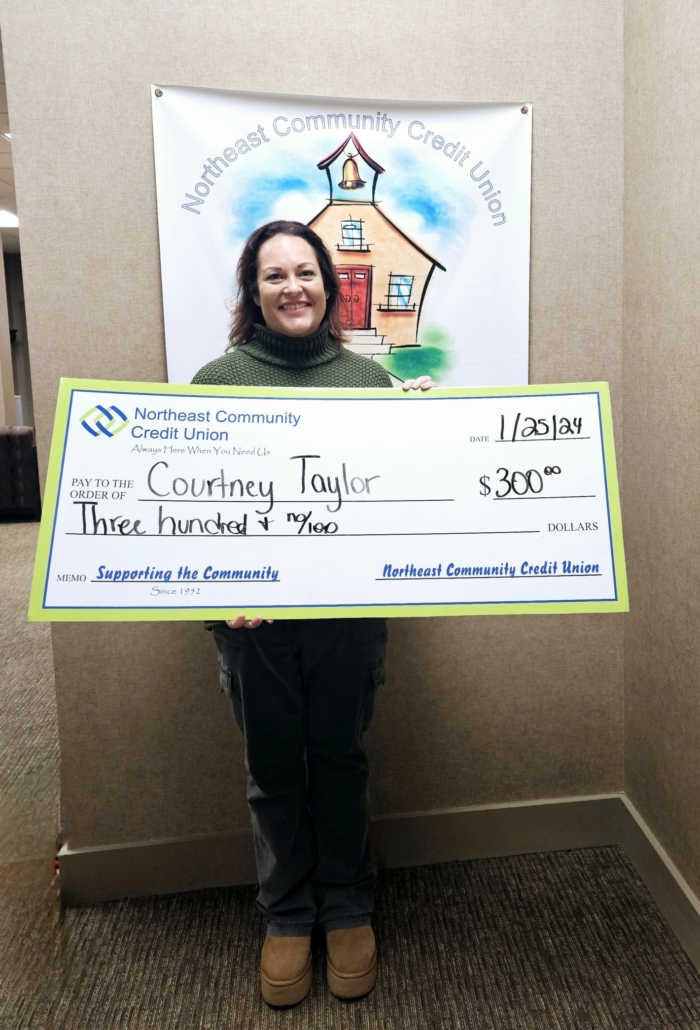 Northeast Community Credit Union Helping Teachers Teach grant winner.
Northeast Community Credit Union Helping Teachers Teach grant winner.
Taylor applied for the grant to purchase materials and programs to enhance students’ reading skills – specifically students showing signs of dyslexia and students that speak a language other than English.
“Struggling readers are often very hesitant to participate in reading activities,” Taylor said. “Many of my students are already frustrated with their reading abilities. The resources I have found are used in game-like situations, so students feel like they are playing, even though they are learning at the same time. I would love for them to increase their reading levels while playing fun learning-based games.”
Northeast Community Credit Union awards $300 every month to a classroom to be utilized for classroom needs, classroom activities, and academic enrichment. Helping Teachers Teach is open to teachers within Carter, Johnson, Unicoi, Sullivan and Washington counties who are members of Northeast Community Credit Union. Area teachers may become members online or at any NCCU location and can download the grant application on the credit union’s website: www.BeMyCU.org.
Northeast Community Credit Union is investing in the children of Carter County with a donation of 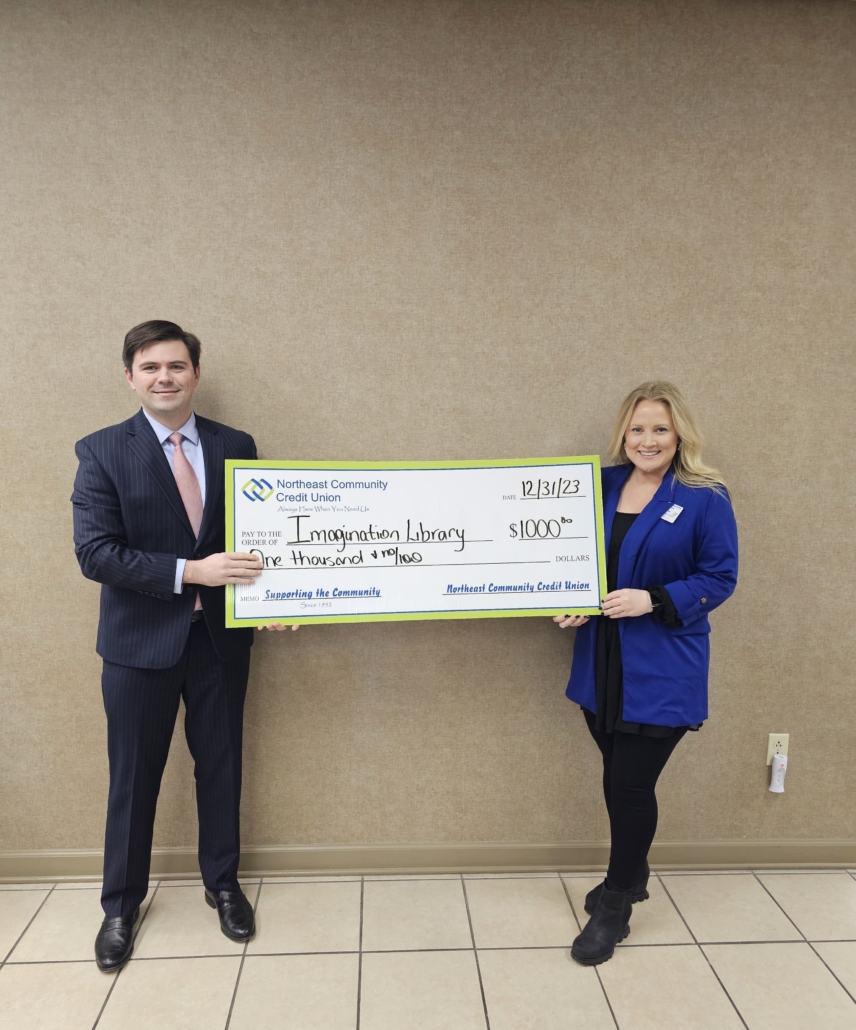 $1,000 to the Carter County Imagination Library.
$1,000 to the Carter County Imagination Library.
Northeast Community Credit Union is a Foundation Member of CCIL and has contributed thousands of dollars since the start of Carter County Imagination Library. Carter County Imagination Library provides a free book to children in Carter County every month from birth until they turn five years old.
“Our Board of Directors has a commitment to our community to annually donate a percentage of proceeds to local organizations for worthy causes,” NCCU President/CEO Teresa Arnold said. “We are so grateful for an opportunity to help provide books to children in our area. Children encounter worlds of adventure and inspiration while experiencing the enjoyment books can bring for a lifetime.”
According to the CCIL, the cost to provide children with books from birth until age 5 is around $150 per child. Presenting this year’s donation on behalf of NCCU to Carter County Imagination Library is Andrea Lewis, Business Development and Event Coordinator.
To donate to the Imagination Library, contact the Elizabethton/Carter County Public Library at (423) 547-6360.
Northeast Community Credit Union is a major contributor in the local community and has been providing service since October 1952 when it was chartered as a credit union by the State of Tennessee. Northeast Community Credit Union is a not-for-profit financial cooperative focused on youth financial education, providing convenient low-cost financial products and service to help families have richer futures, and growing strong local businesses while serving anyone who lives, works, worships or attends school in Carter, Johnson, Washington, Unicoi and Sullivan counties along with their family members.
Amy Cole, teacher at Harold McCormick Elementary, is the latest Northeast Community Credit Union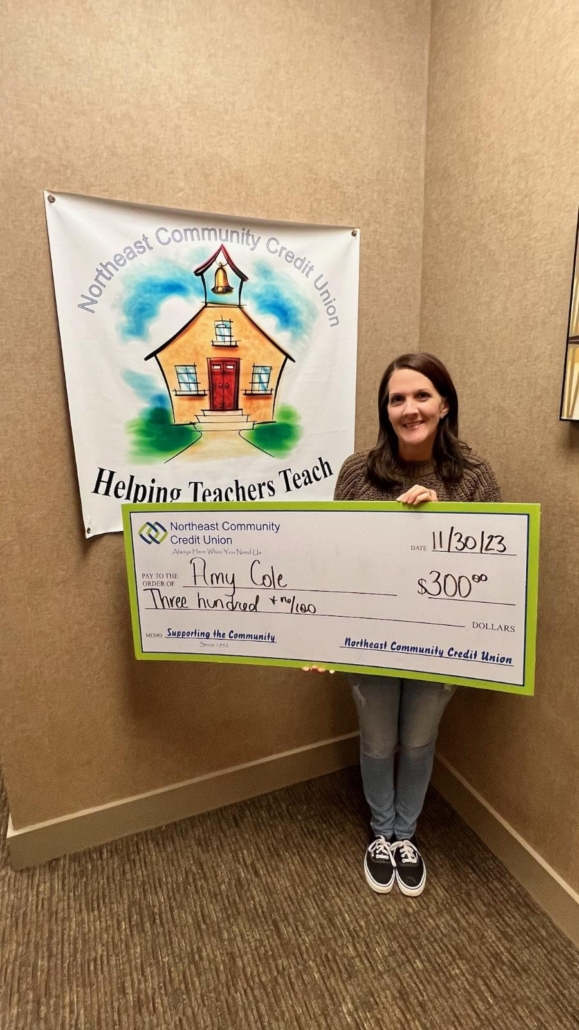 Helping Teachers Teach grant winner.
Helping Teachers Teach grant winner.
Cole applied for the grant to provide Boogie Board tablets for students to use to practice writing. The Boogie Boards will be used in addition to paper and dry erase boards.
“The students will have another way to practice letter formation and then later use them to practice writing words and sentences,” Cole said.
Northeast Community Credit Union awards $300 every month to a classroom to be utilized for classroom needs, classroom activities, and academic enrichment. Helping Teachers Teach is open to teachers within Carter, Johnson, Unicoi, Sullivan and Washington counties who are members of Northeast Community Credit Union. Area teachers may become members online or at any NCCU location and can download the grant application on the credit union’s website: www.BeMyCU.org.
